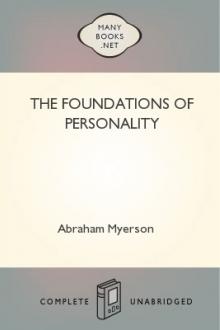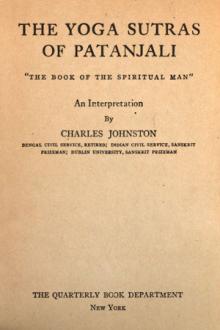Genre Philosophy. Page - 15

thebrain. In fact, it does not, for the long-headed are notlong-brained, nor are the short-headed short-brained. Second, thesize and disposal of the sinuses, the state of nutrition inchildhood have far more to do with the "bumps" of the head thanbrain or character. The bump of philoprogenitiveness has in myexperience more often been the result of rickets than a sign ofparental love.
[1] It is to be remembered that phrenology had a good standing atone time, though it has since lapsed into quackdom. This is thehistory of many a "short cut" into knowledge. Thus the wisest menof past centuries believed in astrology. Paracelsus, who gave tothe world the use of Hg in therapeutics, relied in large part forhis diagnosis and cures upon alchemy and astrology.
Without meaning to pun, we may dismiss the claims of palmistryoffhand. Normally the lines of the hand do not change from birthto death, but character does change. The hand, its shape and itstexture are markedly influenced by illness,[1] toil

rances, bondage to works, and the fruition and seed of works.
The Soul of the Master, the Lord, is of the same nature as the soul in us; but we still bear the burden of many evils, we are in bondage through our former works, we are under the dominance of sorrow. The Soul of the Master is free from sin and servitude and sorrow.
25. In the Master is the perfect seed of Omniscience.
The Soul of the Master is in essence one with the Oversoul, and therefore partaker of the Oversoul's all-wisdom and all-power. All spiritual attainment rests on this, and is possible because the soul and the Oversoul are One.
26. He is the Teacher of all who have gone before, since he is not limited by Time.
From the beginning, the Oversoul has been the Teacher of all souls, which, by their entrance into the Oversoul, by realizing their oneness with the Oversoul, have inherited the kingdom of the Light. For the Oversoul is before Time, and Time, father of all else, is one of His children.
27.

this consciousness being attained, he passes to the rank of the Initiates. When the Initiate passes the second degree of consciousness, and begins to grow into a realization of his relationship to the Whole--when he begins to manifest the Expansion of Self--then is he on the road to Mastership.
In the present lesson we shall endeavor to point out to the Candidate the methods of developing or increasing the realization of this "I" consciousness--this first degree work. We give the following exercises or development drills for the Candidate to practice. He will find that a careful and conscientious following of these directions will tend to unfold in him a sufficient degree of the "I" consciousness, to enable him to enter into higher stages of development and power. All that is necessary is for the Candidate to feel within himself the dawn of the awakening consciousness, or awareness of the Real Self. The higher stages of the "I" consciousness come gradually, for once on the Path there is no retrogressio

imself familiar with it. If he were studying only the body, and desired to understand its activities, he would have to classify its tissues at far greater length and with far more minuteness than I am using here. He would have to learn the differences between muscular, nervous, glandular, bony, cartilaginous, epithelial, connective, tissues, and all their varieties; and if he rebelled, in his ignorance, against such an elaborate division, it would be explained to him that only by such an analysis of the different components of the body can the varied and complicated phenomena of life-activity be understood. One kind of tissue is wanted for support, another for movement, another for secretion, another for absorption, and so on; and if each kind does not have its own distinctive name, dire confusion and misunderstanding must result, and physical functions remain unintelligible. In the long run time is gained, as well as clearness, by learning a few necessary technical terms, and as clearness is above all things

n ill-greased pulley, and ended by degenerating into a terrible spasm of coughing. The fire basket now clearly lit up his large head, with its scanty white hair and flat, livid face, spotted with bluish patches. He was short, with an enormous neck, projecting calves and heels, and long arms, with massive hands falling to his knees. For the rest, like his horse, which stood immovable, without suffering from the wind, he seemed to be made of stone; he had no appearance of feeling either the cold or the gusts that whistled at his ears. When he coughed his throat was torn by a deep rasping; he spat at the foot of the basket and the earth was blackened.
Étienne looked at him and at the ground which he had thus stained.
"Have you been working long at the mine?"
Bonnemort flung open both arms.
"Long? I should think so. I was not eight when I went down into the Voreux and I am now fifty-eight. Reckon that up! I have been everything down there; at first trammer, then putter, when I h

, though it were by bringing the whole to nothing. But as still, after all, it seemed to me more tending to the glory of God, to establish and prosper the Orphan-House, I could then ask Him heartily, to send applications. I enjoyed now a peaceful state of heart concerning the subject, and was also more assured than ever that God would establish it. The very next day, February 4, the first application was made, and since then 42 more have been made."
"JUST FOR TO-DAY."
Later on, when there were nearly 100 persons to be maintained, and the funds were reduced to about £20, Mr. Müller writes:--
"July 22 [1838].--This evening I was walking in our little garden, meditating on Heb. xiii. 8, "Jesus Christ the same yesterday, and to-day, and for ever." Whilst meditating on His unchangeable love, power, wisdom, &c.--and turning all, as I went on, into prayer respecting myself; and whilst applying likewise His unchangeable love, and power and wisdom, &c., both to

s kinds of success, and it is frequently necessary that a man should fail in one direction that he may reach up to a greater and more far-reaching success. If, for instance, a literary, artistic, or spiritual genius should begin by trying to make money, it may be, and often is, to his advantage and the betterment of his genius that he should fail therein, so that he may achieve that more sublime success wherein lies his real power. Many a millionaire would doubtless be willing to barter his millions for the literary success of a Shakespeare or the spiritual success of a Buddha, and would thereby consider that he had made a good bargain. Exceptional spiritual success is rarely accompanied with riches, yet financial success cannot in any way compare with it in greatness and grandeur. But I am not, in this book, dealing with the success of the saint or spiritual genius but with that success which concerns the welfare, well-being, and happiness of the broadly average man and woman, in a word, with the prosperity

thegreater part of their rent, which had been paid in advance. Theevidence of Mr. H---- himself, of his butler, and of several guests,will be found in due chronological sequence.
* * * * *
When Colonel Taylor, one of the fundamental members of the LondonSpiritualist Alliance, a distinguished member of the S.P.R., whosename is associated both in this country and in America with theinvestigation of haunted houses, offered to take a lease of B----House, after the lease had been resigned by Mr. H----, the proprietormade no objection whatever. Indeed, the only allusion made to thehaunting was the expression of a hope on the part of Captain S----'sagents in Edinburgh, that Colonel Taylor would not make it a subjectof complaint, as had been done by Mr. H----, in reply to which theywere informed that Colonel Taylor was thoroughly well aware of whathad happened during Mr. H----'s tenancy, and would undertake to makeno complaint on the subject. Captain S---- having th

ome. We need to be happy in this wonderland without once being merely comfortable. It is THIS achievement of my creed that I shall chiefly pursue in these pages.
But I have a peculiar reason for mentioning the man in a yacht, who discovered England. For I am that man in a yacht. I discovered England. I do not see how this book can avoid being egotistical; and I do not quite see (to tell the truth) how it can avoid being dull. Dulness will, however, free me from the charge which I most lament; the charge of being flippant. Mere light sophistry is the thing that I happen to despise most of all things, and it is perhaps a wholesome fact that this is the thing of which I am generally accused. I know nothing so contemptible as a mere paradox; a mere ingenious defence of the indefensible. If it were true (as has been said) that Mr. Bernard Shaw lived upon paradox, then he ought to be a mere common millionaire; for a man of his mental activity could invent a sophistry every six minutes. It is as easy as lying

must be, in the nature of things, a latent capacity greater than has yet been discovered. And one discovery must lead to another until the man finds the deep wealth of his own possibilities. History is full of the acts of men who discovered somewhat of their own capacity; but history has yet to record the man who fully discovered all that he might have been."
[Sidenote: "Acres of Diamonds"]
You who are a bit vain of your visits to other lands, your wide reading, your experience of men and things; you who secretly lament that so little of what you have seen and read remains with you, behold, your "acres of diamonds" are within you, needing but the mystic formula that shall reveal the treasure!
THE MECHANISM OF RECALL
[Illustration: Decorative Header]
CHAPTER III
THE MECHANISM OF RECALL
[Sidenote: The Right Stimulus]
Somehow, somewhere, all experiences, whether subject to voluntary recall or not, are pre